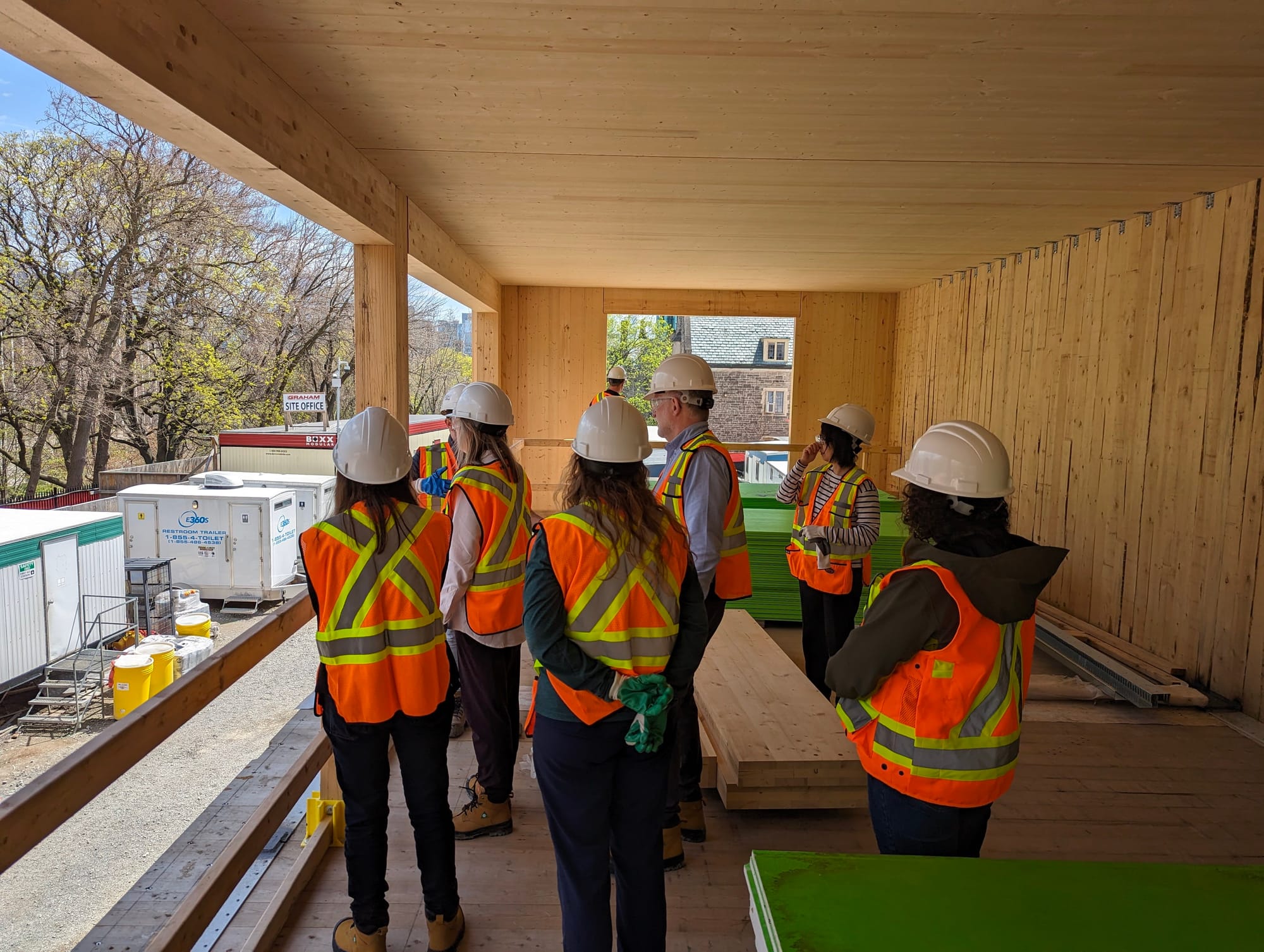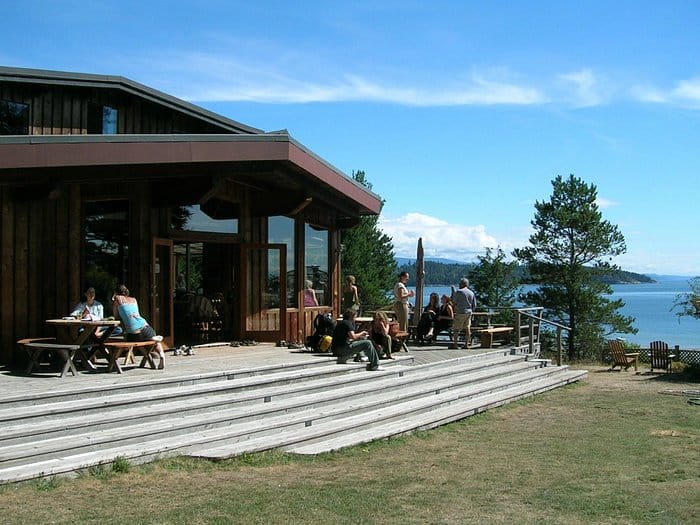The Future of Labs - Part 1: Foundations
What is the role of the "Lab" in the current landscape of approaches to change? What are the core practices and structures to make Labs effective? Where are the potential overlaps, differences and opportunities of connecting to other approaches which are evolving around the world?

In advance of The Future of Labs Gathering on Cortes Island (BC, Canada), I have been exploring and reflecting on the broad field that Labs contribute to through not only my work at Monash University (leading the development of a social & relational infrastructure to support living labs), but also through a study tour and knowledge exchange with significant players in the University space in Canada (more about the tour here).
I love the framing of the questions in The Future of Labs Gathering primer report which has just launched (which can be found in the third section on the homepage) or here:
The intention is to have 5 primary conversations:
- Conversation 1: Defining Labs
- Conversation 2: Exploring our 'niche', situating Labs amongst other change approaches
- Conversation 3: What's reasonable to expect from Labs?
- Conversation 4: Helpful Lab practices
- Conversation 5: What are the necessary conditions and supporting ecoststem for social innovation labs to thrive in Canada?
Enquiries about the 'Lab field'
I think the Gathering's conversations are a great start, and I'm holding many of the same questions about how we enable the broader Lab field in Australia & Aotearoa New Zealand.
However I am also noticing some aspects whilst I've been preparing for the Gathering through my work, explorations at the Living Lab conference in Europe last year, and in conversation with Universities around the world.
I'll try to tease some of these out and frame them up:
Learning across the broader Labs field
Social innovation Labs (in Canada) don't seem to have a significant degree of interaction with and learning from Living Labs which are increasingly being utilised as a vehicle for multistakeholder work on complex challenges - which I would argue is the space that social innovation labs focus primarily.
Likewise connecting this social innovation lab practice into what is happening in the broader public policy and innovation ecosystems is important, such as mission-oriented innovation and the likes of startup incubators. Why? Well I'd argue Labs are part of the same field, operating with different theories of change, and often overlapping and connecting at different stages.
Knowing how we relate to, complement and differ from those, is part of our value proposition.
Tracking international models
The evolution of lab practice isn't just happening in Canada. There is rapid development of social and environmental change work happening all over the world, and the opportunity to create a connected, visible global network is considerable.
Perhaps there should be a multi-continent 'observatory' which has a common agenda to listen, reach out, curate and build an archive of evidence around? Whilst this is a nascent thought, on reflection this feels like what I have been personally doing through my last 10-15 years, and I'm keen to explore if others are doing the same.
Relational Practice
As well as learning from other models (as focused on above), social innovation labs also have a lot to share and I would argue have a responsibility and an opportunity to improve the practice of the broader field.
I've noticed that some living labs have a tendency to focus on either implementation or (urban) experimentation to advance their agenda - such as climate adaptation, soil health, campus sustainability, or a myriad of other domains. I have noticed however, that their practices often focus on a relatively shallow plain of collaboration - focused on finding common agendas, co-creating solutions, and looking for opportunity to scale/transfer learnings or solutions. Whilst this is admirable, it misses the important inner and relational focuses which I've seen present in many social (innovation) labs - which means they often miss the transformative potential of that work which can build personal agency, shift organisational agendas, enable new forms of collaboration, and entirely rewrite the intent of whole systems.
Much to be explored here.
Financing Change
Finally, for me there's a very salient exploration of the value proposition and associated models, mechanisms and financing of these activities.
What I am exploring in Australia is both an infrastructure (capabilities, relationships and physical/digital assets) to support a wide range of living labs, as well as a new mission/challenge-oriented precinct which blends place-based work with the know-how to unpack and work on complex challenges, such as sustainable mobility transitions or urban heat island effects.
Whilst the value proposition is multi-sided - for Government, Civil Society, Business and the University - the models and mechanisms for co-financing this are an evolving and moving target. I feel like I've got some way to pull the threads of this together, and I'm looking forward to exploring this with others soon.

The Groundwork
I alluded to the foundational work I've been doing in the sections above, so I figured I should probably outline some aspects I've been working on for context.
Experience with Social Labs
For those of you who don't know, over the last 10 years I've been involved in co-leading a social lab in Aotearoa NZ on youth mental health and wellbeing (called Lifehack), working on global community of practice for social labs practitioners (via Social-Labs.org - now defunct), minor role with Grove 3547 social lab in Chicago.
My subsequent work (Peer Academy, Conservation Volunteers Australia, TACSI), studies (Masters of Design), and writing (across Medium and here) have largely carried my practice over the intervening couple of years as I transitioned to life in Australia with a young family and navigated the sudden passing of my father.
Report on University Living Labs
When I first joined Monash University nearly 2 years ago, I quickly learned a colleague (Dr Paris Hadfield) was in the thick of pulling together a rapid report on University Living Labs (ULL), and their 'governance models'. This has been useful in understanding the spectrum of ULL models and both the opportunities and pitfalls in how they operate.
You can read the report (open access) here:
Living Lab Infrastructure at Monash University
Initially I was brought into Monash partially to explore the shape and potential for a University Living Lab model, with a focus on our Campus as a Living Lab. In the course of scoping and engagement work I found a large number of living labs (circa 16 at last count) in a range of states of development and maturity, a range of geographies (including Australia, Indonesia and India), and a range of models and practices.
This has led me to explore, recommend, and experiment with a range of initiatives to start to build out a social and relational infrastructure to support this field of living labs. I hope to publish a little more about this soon.
Open Living Lab Days (OLLD) 2023 in Barcelona
OLLD is run by the European Network of Living Labs, and brings together living lab practitioners from Europe but also further afield. I managed to connect with not only a broad European contingent, but also people from Japan, South Korea, Africa, other parts of Australia).
This time not only taught me about the breadth and depth of living labs use and practice around the world, but also the trajectory they're on in Europe especially. I also found out about wonderful pockets of work like the Festival Experimentation Guide which took Festivals as a lab environment to test and trial new ideas.
Challenge Precinct
As I mentioned above, through Monash University I am also looking at the intersection of mission/challenge-oriented innovation (Mazzucato), innovation districts, and place-based social labs.
I'm lucky to have the likes of Rob Raven & Darren Sharp as collaborators (and as a manager!) at Monash, and their paper on Mission Oriented Innovation Districts was a thought starter for me on this (should be open access).
Canada 2024 Study Tour
Before the Future of Labs Gathering, I've also been making my way to a number of key meetings, tours & knowledge exchanges with Centre for Social Innovation, University of Toronto's campus as a living lab & sustainability team (and Visionary Communities but I didn't get to talk about this) and just yesterday - University of British Columbia's campus as a living lab team.

Wrapping Up
I'm still mulling these learnings and insights over, but weaving all of these threads together is how I intend to arrive and participate at the Future of Labs Gathering, and I look forward to Hollyhock Cortes Island Retreat Centre for the beginning of the gathering tomorrow.







